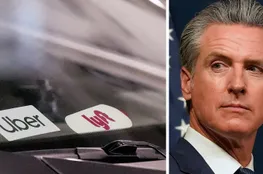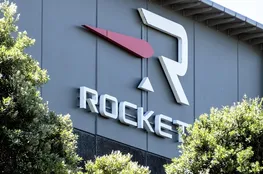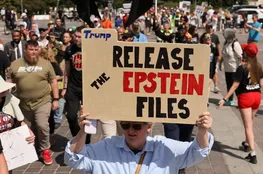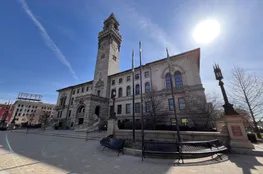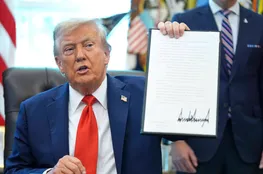Via VigilantFox.com FBI Director Kash Patel sat down with Joe Rogan in Austin, Texas, where he dropped a series of revelations about the Bureau’s ongoing investigation into Jeffrey Epstein, including a promise to release jail cell surveillance footage and newly uncovered evidence that could implicate Anthony Fauci. Kash Patel didn’t waste any time. He opened with a stat that most Americans have probably never heard—and it was a big one. During Trump’s first term, Patel was in charge of counterterrorism for the White House and National Security Council. In that role, he helped lead one of the administration’s most overlooked achievements. "Hostages, we can talk about that forever too," Patel said. "Counterterrorism was a big portfolio, I ran it for the White House and National Security Council in the first Trump administration." Then he dropped the number: "We brought home—people don’t know this—President Trump in his first term, brought home and rescued over 50 hostages and detainees from around the world." He added, "That’s more than every president before him combined." Rogan looked stunned. "Wow," he said. Patel explained that hardly anyone knows these rescues even happened. The missions weren’t covered in the headlines, and the stories of families being reunited after dangerous operations in places like Africa and the Middle East were mostly ignored. "Did you hear about the successes of reuniting families with lost loved ones from Africa or the Middle East?" he asked. He then described how Trump personally signed off on high-risk missions—sending elite forces into hostile territory to bring people home. "These operations, that the president was courageous enough to green light to go into places like Afghanistan and do these hostage rescue ops, and use Seal Team Six and Delta," he said. Kash Patel didn’t waste time. Sitting down with Joe Rogan, he opened with a jaw-dropping stat—one few Americans have ever heard. During Trump’s first term, Patel ran counterterrorism operations for the White House and National Security Council. In that role, he oversaw one...
The next revelation sounded like it came straight out of a spy thriller. When Patel arrived at the FBI, he discovered a secret data room hidden inside the Hoover Building—a room he claimed was deliberately concealed during James Comey’s time at the Bureau. "Me as the Director of the FBI— when I first got to the Bureau, found a room that Comey and others hid from the world in the Hoover Building, full of documents and computer hard drives that no one had ever seen or heard of." Rogan, visibly shocked, blurted out, "Whatttttt...." Patel described a secure room, locked away and buried deep, with access so tightly controlled that even its existence was unknown to most. "Locked the key and hid access, and just said, no one’s ever going to find this place." Rogan again: "Whaaaaaaat?!". Patel continued, "Yeah, so my guys are going through that right now." Rogan asked: "What’s in there?" Patel answered. "A lot of stuff."
Next up was what Patel described as Biden’s border bloodbath. Patel confirmed what many in the media have dismissed as a conspiracy theory. Was the crisis at the southern border just incompetence, or something more calculated? Rogan posed the question directly. "Is this [open border]..."
Before wrapping, Patel shared one final surprise—and this time, it was good news. According to the latest data, the U.S. is on track to hit its lowest murder rate in decades. Rogan, clearly surprised, asked how that could be possible. Patel credited a simple but effective shift in leadership: giving law enforcement the room and resources to do their jobs without political interference. "Let good cops be cops," he said. "I’m gonna let you, the agents, the police officers, the sheriffs, go out there and do the work you so badly want to do. And I’m gonna take away the politicization and weaponization... and that’s what we’ve done." Sometimes, real change doesn’t come from reinventing the system, but from removing the roadblocks and letting professionals do what they were trained to do. Watch the full conversation below:


